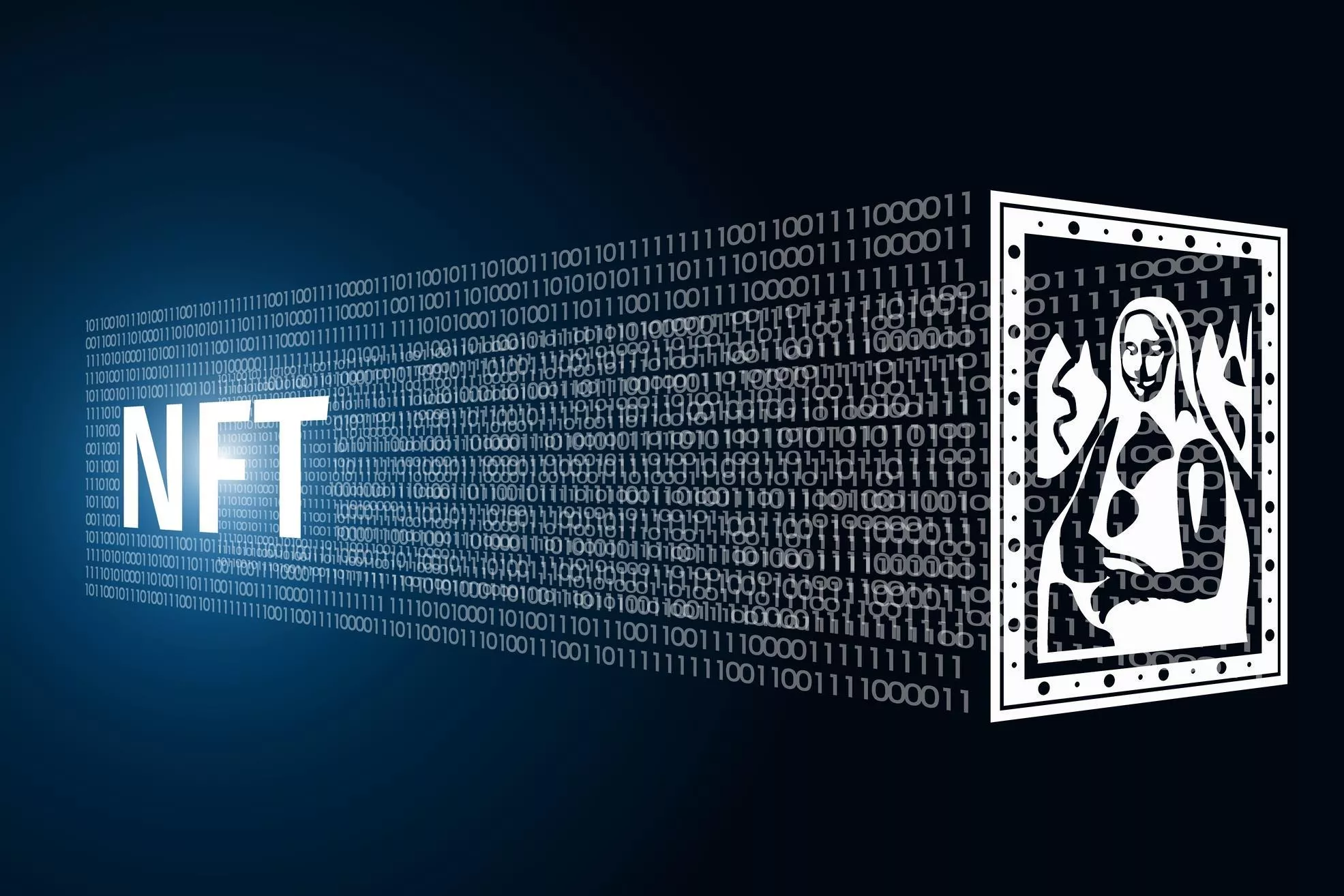Investing in NFTs: Risks and Rewards
Non-Fungible Tokens (NFTs) have taken the world by storm, offering a new and exciting avenue for investment.Non-Fungible Tokens (NFTs) have taken the world by storm, offering a new and exciting avenue for investment. From digital art to virtual real estate, NFTs represent ownership of unique digital assets on the blockchain. While the potential rewards of investing in NFTs are considerable, the risks are equally significant. In this article, we’ll explore both the rewards and risks associated with NFT investments, providing a comprehensive guide to help you navigate this rapidly evolving market.

What Are NFTs?
Before diving into the risks and rewards, it’s essential to understand what NFTs are. NFTs are digital tokens that represent ownership of a specific item or piece of content, such as art, music, videos, or even tweets. Unlike cryptocurrencies like Bitcoin or Ethereum, NFTs are unique and cannot be exchanged on a one-to-one basis with another NFT. This uniqueness is what gives NFTs their value, as each one is a verifiable, one-of-a-kind asset.
NFTs are typically built on blockchain platforms like Ethereum, where they are stored in a digital wallet. The blockchain provides a decentralized ledger that records the ownership and transaction history of each NFT, ensuring transparency and security.
The Rewards of Investing in NFTs
The potential rewards of investing in NFTs can be substantial, attracting a diverse range of investors, from art collectors to speculators. Here are some of the key rewards that make NFTs an attractive investment:
1. High Potential Returns
One of the primary reasons investors flock to NFTs is the potential for high returns. Some NFTs have seen astronomical increases in value within a short period, with certain digital art pieces selling for millions of dollars. For example, the digital artist Beeple sold an NFT artwork for $69 million at Christie’s auction house in 2021, highlighting the potential for significant financial gains.
NFTs can appreciate in value as the demand for digital assets grows, particularly when they are associated with well-known creators or brands. Early adopters who recognize trends and invest in NFTs that become popular can reap substantial rewards.
2. Ownership of Unique Digital Assets
NFTs offer the opportunity to own unique digital assets, which can be appealing to collectors and enthusiasts. Whether it’s a piece of digital art, a rare virtual item, or a collectible, owning an NFT provides a sense of exclusivity and pride. This ownership can also include certain rights, such as the ability to display the NFT in virtual galleries, use it in virtual worlds, or even earn royalties if the asset is used commercially.
For collectors, the ability to own and showcase rare digital items is a significant draw. NFTs can serve as a form of digital status symbol, with the ownership of certain NFTs conferring prestige within online communities.
3. Diversification of Investment Portfolio
Investing in NFTs offers a way to diversify an investment portfolio, particularly for those looking to explore alternative assets. Traditional investment options like stocks, bonds, and real estate can be complemented by digital assets, providing a broader range of opportunities for growth.
NFTs represent a new asset class, distinct from traditional financial markets. By including NFTs in a portfolio, investors can potentially reduce risk through diversification, as the value of NFTs is not directly correlated with the stock market or other traditional assets.
4. Supporting Creators and Artists
Another reward of investing in NFTs is the opportunity to support creators and artists directly. NFTs have revolutionized the art world by allowing artists to sell their work without relying on galleries or middlemen. When you purchase an NFT, you are often buying directly from the creator, ensuring that they receive a fair share of the proceeds.
This direct relationship between creators and buyers is particularly appealing to those who want to support emerging artists or contribute to the growth of digital art. Additionally, many NFT platforms allow creators to earn royalties each time their NFT is resold, providing ongoing income opportunities.

The Risks of Investing in NFTs
While the rewards can be enticing, investing in NFTs is not without risks. The market is still in its early stages, and several factors can make NFT investments volatile and unpredictable. Here are some of the key risks associated with NFTs:
1. Market Volatility
The NFT market is highly volatile, with prices that can fluctuate dramatically over short periods. While some NFTs have seen significant appreciation, others have lost value quickly, leading to substantial losses for investors. The value of an NFT is largely driven by demand, and if interest in a particular asset or category wanes, prices can plummet.
This volatility is compounded by the speculative nature of the NFT market. Many investors purchase NFTs with the hope of selling them at a higher price, leading to bubbles that can burst suddenly. As a result, investing in NFTs can be akin to gambling, with no guarantee of returns.
2. Lack of Regulation
The NFT market operates in a largely unregulated environment, which can expose investors to various risks. Unlike traditional financial markets, there are few safeguards in place to protect investors from fraud, market manipulation, or other unethical practices. Scammers can create fake NFTs, impersonate well-known artists, or set up fraudulent platforms to steal funds.
The lack of regulation also means that investors have limited recourse if something goes wrong. If an NFT platform shuts down or an NFT loses its value, there may be little legal protection for investors. This uncertainty adds to the risk of investing in NFTs.
3. Potential for Scams and Fraud
As the NFT market has grown, so too has the prevalence of scams and fraud. Scammers can create counterfeit NFTs by copying digital art or other content and selling it as their own. They may also set up fake NFT platforms that mimic legitimate ones, luring investors into making purchases on these fraudulent sites.
Phishing scams, where hackers trick individuals into revealing their private keys or seed phrases, are also common in the NFT space. Once these keys are compromised, scammers can steal NFTs and other digital assets from a wallet.
To mitigate these risks, investors must be diligent in verifying the authenticity of NFTs and the platforms they use. However, the potential for scams remains a significant concern in the NFT market.
4. Environmental Impact
The environmental impact of NFTs is another risk that has garnered attention. Most NFTs are built on the Ethereum blockchain, which uses a Proof of Work (PoW) consensus mechanism. PoW requires significant computational power, leading to high energy consumption and a large carbon footprint.
For environmentally conscious investors, the energy-intensive nature of NFTs may be a deterrent. While there are efforts to transition to more sustainable blockchain technologies, such as Ethereum’s planned shift to Proof of Stake (PoS), the environmental impact remains a critical issue in the NFT space.
5. Liquidity Risks
Liquidity refers to the ease with which an asset can be bought or sold without affecting its price. In the NFT market, liquidity can be a significant issue, as finding a buyer for a specific NFT may not always be easy. Unlike stocks or cryptocurrencies, which can be quickly traded on exchanges, NFTs are unique and may appeal to a limited audience.
If an investor needs to sell an NFT quickly, they may have to accept a lower price due to the lack of liquidity. This can result in financial losses, particularly if the market for that specific NFT is not active.
6. Intellectual Property Concerns
NFTs raise complex issues around intellectual property rights. When purchasing an NFT, the buyer owns the token, but they may not necessarily own the underlying intellectual property associated with the digital asset. For example, buying an NFT of a piece of digital art does not automatically grant the buyer rights to reproduce or commercialize the artwork.
This lack of clarity around intellectual property can lead to disputes and legal challenges. Investors must carefully review the terms and conditions of NFT purchases to understand what rights they are acquiring.
Conclusion
Investing in NFTs offers both exciting rewards and significant risks. The potential for high returns, ownership of unique digital assets, and the ability to support creators make NFTs an attractive investment option for many. However, the market’s volatility, lack of regulation, and potential for scams mean that investors must approach NFTs with caution.
To succeed in the NFT market, investors should educate themselves thoroughly, conduct due diligence, and be prepared for the inherent risks. As with any investment, it’s crucial to diversify and not invest more than you can afford to lose. By understanding the risks and rewards, you can make informed decisions and navigate the NFT space with confidence.
